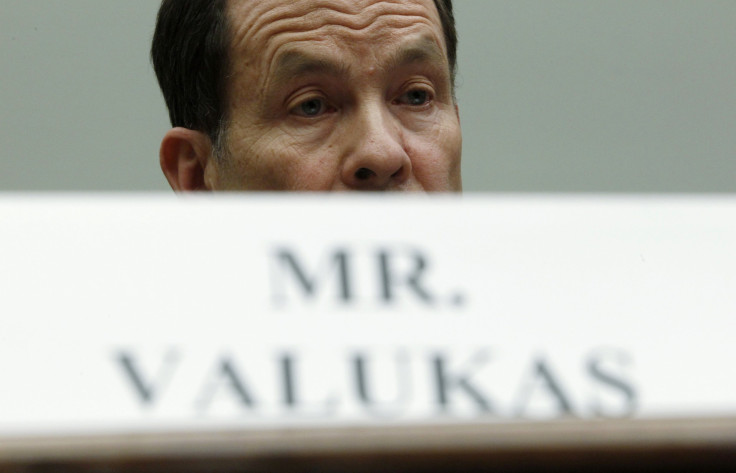GM Ignition Switch Recall: Valukas Report Expected Out This Week, Could Answer Key Questions About What GM Knew And When About Fatal Design Flaw

Former federal prosecutor Anton Valukas is finalizing a highly anticipated report about General Motors Co. (NYSE:GM)’s bungled response to a slipshod ignition switch that the company acknowledges caused the deaths of least 13 people.
The report, which could be released as early as this week, is expected to answer important questions about why it took more than a decade for North America’s largest automaker to rectify a flaw in early Chevrolet Cobalts and other compact sedans. The company acknowledged that some of its engineers were aware of the problem as far back as 2001.
So far, GM has not fired anyone in connection with the $1.7 billion recall of about 2.6 million cars whose ignition switches can slip from the “on” to the “accessory” position while the vehicle is in motion, disabling power brakes, airbags and power steering.
GM CEO Mary Barra, who took GM's helm on Jan. 15, testified at two congressional hearings in April, but she declined to answer some of the most important questions. Instead, she urged indignant lawmakers to wait until the Valukas report was released. House members, including Marsha Blackburn, R-Tenn., and Diana DeGette, D-Colo., went so far as to suggest that GM was involved in a cover-up.
Valukas, a Republican and former federal prosecutor who famously cracked down on judicial corruption in Cook County, Illinois, in the mid-1980s, has been given “free reign” to pursue the facts in the case, according to Barra. The attorney, who is also the chairman of the Chicago-based law firm Jenner & Block, was appointed examiner in the Lehman Brothers Holdings bankruptcy, and he was lauded for his work outlining the causes of the collapse of the financial services firm in 2008.
After Valukas releases his report, GM is expected to announce new measures to expedite the disclosure of safety issues to the company’s top executives. GM claims it is not liable for damages for vehicle defects prior to its Chapter 11 reorganization in 2009.
Some of the most important questions revolve around who at GM knew what and when about the faulty ignition switch. Both Barra and her predecessor, Dan Akerson, have publicly denied any knowledge about the ignition switch problem prior to December, when the company was preparing to issue a safety recall of the affected vehicles, 13 years after the first indications of a problem emerged with the ignition switches in the Chevrolet Cobalt, Saturn Ion and Pontiac G5. By 2005, dealers were reporting customer complaints about the ignition switch to company as GM employees, including the switch’s chief designer, Raymond DeGiorgio, were discussing the cost of fixing the problem.
By 2012 there was sufficient evidence to suggest that people inside the company were well aware of the problem, but it's unclear to what degree that knowledge legally constitutes a cover-up. Last month, GM was fined $35 million by the National Highway Transportation Safety Administration (NHTSA) for not reacting quickly enough to the agency’s request for answers.
"GM engineers knew about the defect," David Freidman, the NHTSA's acting administrator, said when he announced the fine. "GM investigators knew about the defect. GM lawyers knew about the defect. But GM did not act to protect Americans from that defect."
GM executives deny any cover-up, and they blame a flawed internal process that they say kept knowledge of the defect from traveling up the company's chain of command. The Valukas report should offer a clearer picture of that process.
© Copyright IBTimes 2024. All rights reserved.






















